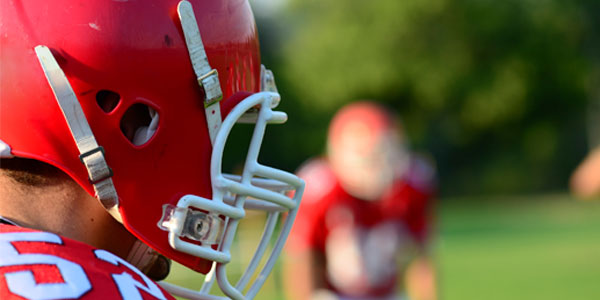Once upon a time, cartoon characters saw stars. Boxers got punch drunk. Football players had their bells rung. And soldiers were shell shocked. Today we know these innocent-sounding terms describe serious injuries that doctors call concussions, mild traumatic brain injuries or closed head injuries. We also know these injuries are nothing to laugh about.
Doctors often see brain trauma in people who’ve been involved in accidents and falls, but less recognized causes have also captured media attention in recent years. Stories began appearing about former pro-football players dealing with the long-term effects of multiple concussions in the early 1990s. Concerns also began to rise in the mid-2000s as health officials became aware of returning U.S. soldiers who appeared unscathed, but were suffering from the effects of brain trauma caused by powerful blast waves sent out by improvised explosive devices. Studies show that about 20 percent of returning soldiers experienced one or more concussions while serving in Iraq or Afghanistan.
“With a concussion, there may be no visible signs of injury,” says Shawn Kile, M.D., a Sutter Medical Foundation neurologist who specializes in treating patients with concussions. “And in the case of blast injuries, there might be no direct impact.”
Concussions are not isolated to activities where trauma is common. According to the Centers for Disease Control and Prevention, approximately 1.6 million to 3.8 million sports- and recreation-related traumatic brain injuries occur in the United States each year. Most of these are mild traumatic brain injuries that are not treated in a hospital or emergency room.

“All contact sports—football, soccer, lacrosse and others—put kids at risk of concussion,” says Sarah Cheyette, M.D., a Palo Alto Medical Foundation neurologist who specializes in children’s headaches, “but without a doubt, I see more concussions in girls who play soccer than I see in both male and female athletes in all other sports combined.”
In his adult patients, Dr. Kile sees a variety of causes, including “a number of patients who suffered concussions from falls, especially tree trimmers and horseback riders.” He adds, “It’s also not unusual to see someone who experienced a concussion after a seemingly minor incident, such as tripping or slipping and falling. The severity of the accident doesn’t always relate to the intensity of the concussion symptoms.”









